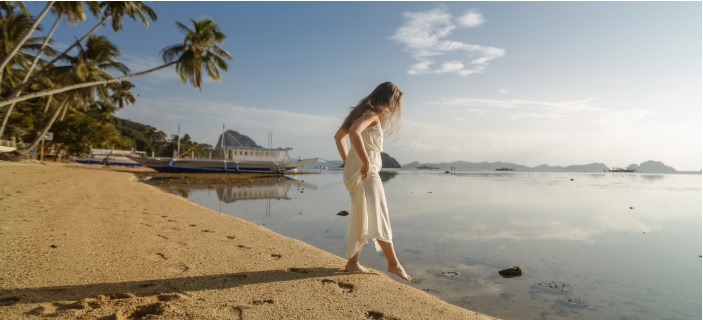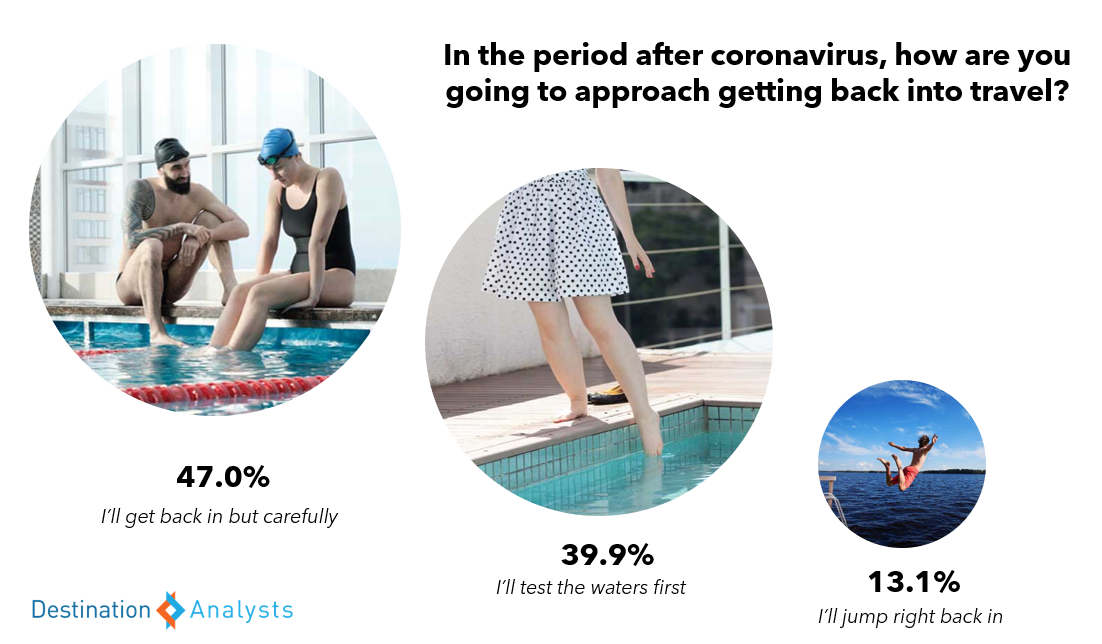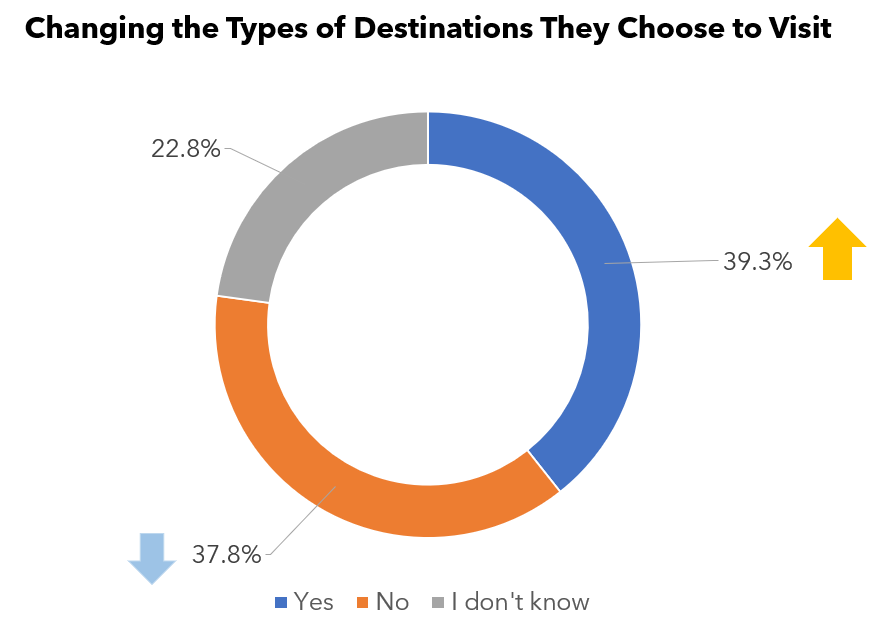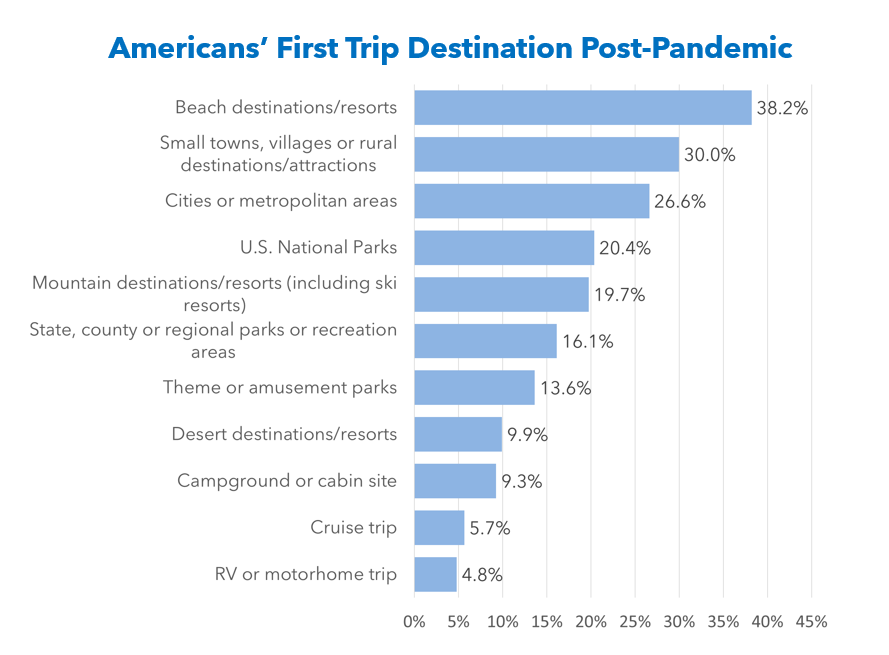Update on Coronavirus’ Impact on American Travel—Week of April 13
Americans Will Approach Travel Cautiously and Differently Post Pandemic

IMPORTANT: These data and findings are brought to you from our independent research, which is not sponsored, conducted or influenced by any advertising or marketing agency.
Key Findings to Know
- Americans are feeling somewhat better that the worst of COVID-19 in the U.S. may soon be over.
- While nearly 70 percent continue to say they miss travel, few will jump right back in when the coronavirus situation has passed. Nine in ten American travelers say they will approach travel carefully with at least some trepidation
- It will not be a simple return to pre-pandemic sentiments and behaviors: Now, nearly 40 percent of American travelers say they will change the types of destinations they choose to visit when they begin traveling again
- American travelers increasingly say they will be avoiding crowds—including conferences/conventions—destinations hardest hit by coronavirus, and destinations slow to put social distancing measures in place. Also on a continual rise: the number agreeing they will take a staycation this summer and the number of younger travelers who say they will take more road trips to avoid airline travel (49.4% from 43.4% one month ago)
- When asked the place they will visit on their first post-pandemic trip, beach/resort destinations top the list, followed by small towns/rural areas, then cities
Americans are feeling somewhat better that the worst of COVID-19 in the U.S. may soon be over. The percent feeling the coronavirus situation in the United States will get better in the next month nearly doubled to 29.5% from 15.4%. The percent who say they have had travel impacted by coronavirus remained at the same level this week (72.8%).
And yet while nearly 70 percent continue to say they miss travel, few American travelers will jump right back in when the coronavirus situation has passed. As demonstrated by the images they selected to represent how they will approach travel in the post-coronavirus period, nine in ten American travelers feel feel this will be done with care and at least some trepidation.

Furthermore, it will not be a simple return to pre-pandemic sentiments and behaviors. Now, nearly 40 percent of American travelers say they will change the types of destinations they choose to visit when they begin traveling again—this is up nearly 10 percentage points from just one week ago.

Beyond the substitution of destinations, the coronavirus pandemic looks to have a, hopefully temporary but, fundamental impact on how Americans travel and the experiences they choose. American travelers increasingly say they will be avoiding crowded places (55.7%)—including conferences/conventions (40.3%)—when they begin traveling again. They are also increasingly saying they will avoid destinations hardest hit by coronavirus (50.5%), and destinations slow to put social distancing measures in place (32.7%). Also on a continual rise: the number agreeing they will take a staycation this summer (55.2%, up from 41.3% one month ago), and the number of younger travelers who say they will take more road trips to avoid airline travel (49.4% from 43.4% one month ago)
When asked the place they will visit on their first post-pandemic trip, beach/resort destinations top the list (38.2%), followed by small towns/rural areas (30.0%) then cities (26.6%).

If you are looking to discounts and deals as a strategy to attract travelers, this is likeliest to be most effective with younger travelers. This week, 42.1% of Millennial and GenZ travelers say price cutting and discounting makes them more interested in traveling in the next three months. In comparison just 31.3% of GenX and 25.3% of Boomers agreed. Also, while July and August are currently the months with the highest percentage of travelers saying they have trip plans, later months continue to show gains, including October and December.
A presentation file summarizing these key findings is available for you to download.
